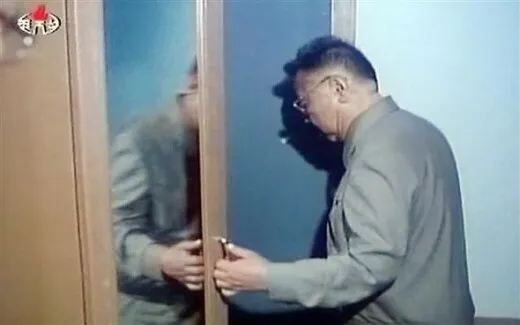hankyoreh
Links to other country sites 다른 나라 사이트 링크
N.Korea replaces key diplomats

Lee Je-hoon, Staff Writers
North Korean authorities reportedly recently adjusted the roles of the country’s diplomatic line regarding major nations such as the United States, China, Russia, and Japan.
A foreign affairs source familiar with the internal situation in North Korea reported Thursday that Kang Sok-ju, following his promotion to the position of vice-premier of the cabinet, is handling China and Russia, while Kim Kye-kwan, who has become first vice foreign minister, is responsible for the designated hostile nations of the United States and Japan.
“The role of Kim Kye-kwan has comparatively grown,” the source said.
The source also hinted at a changing of generations in the adjustment of roles in the foreign affairs line.
“Outstanding talents from the ‘next generation’ group were newly placed in bureau director and deputy bureau director positions in the North Korean foreign ministry,” the source reported.
Indeed, the 71-year-old Kang has made frequently appearances in diplomatic visits with China, accompanying Kim Jong-il on his China visits in May and August of this year and attending a Dec. 9 talk between Kim and Chinese State Councilor Dai Bingguo.
In contrast, the 67-year-old Kim Kye-kwan has served as the face of diplomatic efforts with the United States, meeting with former U.S. President Jimmy Carter and New Mexico Governor Bill Richardson during their respective North Korea visits in August and December.
On Sept. 23, North Korea announced through the Korean Central News Agency (KCNA) that Kang was appointed vice premier of the cabinet from his position as first vice foreign minister, and Kim had been appointed first vice foreign minister from his position as vice foreign minister, in accordance with an order by the Supreme People’s Assembly standing committee.
At the third Workers’ Party of Korea meeting of party representatives on Sept. 28, Kang and Kim also subsequently ascended to positions with the party, the former becoming a member of its central committee political bureau and the latter becoming a central committee alternate member.
Experts say these adjustments in the diplomatic line implied both a continuation of and changes in overseas strategy.
To begin, experts predicted that for overseas strategy, Kang would maintain the role of “overall mediator.” Kang is one of the closest advisers to Kim Jong-il.
Inje University Professor Kim Yeon-chul said, “The status of Kang, now a also member of the political bureau, could be likened to that of Dai in China.”
Second, analysts say that the decision to put Kang in charge of China and Russia was a strategic move to strengthen relations with those countries.
“It may be that North Korea is trying to bring about changes to the existing overseas strategy focusing exclusively on approaching the United States through strengthening its relations with China and Russia,” said an expert who requested anonymity.
Analysts also say the move seems to represent a counter response to efforts from South Korea, the United States, and Japan to weaken its relations with China.
Third, experts predicted that the range of activity for Kim, who is North Korea’s senior representative to the six-party talks on the nuclear issue, will comparatively broaden.
Fourth, experts talked about “pushing a changing of the generational guard” in the diplomatic line. A case in point was the promotion last September of 57-year-old foreign ministry adviser Ri Yong-ho, who had been the country’s deputy representative to the six-party talks, to the position of vice foreign minister. Ri, a former North Korean ambassador to the United Kingdom, not only has a free command of English but has also been praised for his refined diplomatic manner.
Please direct questions or comments to [englishhani@hani.co.kr]
Editorial・opinion
![[Editorial] Korea must find a new equilibrium between US and China [Editorial] Korea must find a new equilibrium between US and China](https://flexible.img.hani.co.kr/flexible/normal/500/300/imgdb/original/2025/1103/3117621579572038.jpg) [Editorial] Korea must find a new equilibrium between US and China
[Editorial] Korea must find a new equilibrium between US and China![[Column] Trump’s protection racket [Column] Trump’s protection racket](https://flexible.img.hani.co.kr/flexible/normal/500/300/imgdb/original/2025/1031/6817618980064942.jpg) [Column] Trump’s protection racket
[Column] Trump’s protection racket- [Editorial] Devil will be in the details of Korea-US trade deal
- [Editorial] Lee must stick to guiding principles in tariff negotiations
- [Editorial] Korea must stick to its principles while working with US, Japan
- [Guest essay] What’s new about the “new Middle East”?
- [Editorial] Asia Future Forum brings bright minds together to explore democracy’s future
- [Column] Russia and China’s golden ticket to destabilizing the dollar
- [Correspondent’s column] Martial law comes for the United States
- [Column] The end of the road for NewJeans, or a new beginning?
Most viewed articles
- 1Yoon said he’d ‘shoot and kill’ certain political figures, testifies former Army commander
- 2USFK sprayed defoliant from 1955 to 1995, new testimony suggests
- 3Korean military expert calls pursuit of nuclear submarine ‘vanity of a nation drunk on delusion of b
- 4Now begins grind of working out nitty-gritty of US-Korea deals on nuclear submarines, energy
- 5ADOR may be winning its legal battle with NewJeans, but at what cost?
- 6Don’t hold your breath for China to lift restrictions on Korean cultural content
- 7Kim Yong-nam, veteran North Korean diplomat who met several South Korean presidents, is dead at 97
- 8[Editorial] Korea must find a new equilibrium between US and China
- 9[Interview] Haecho knew she might die. Trying to bring aid to Gaza was worth the risk.
- 10Nepotism remains prevalent at Korean chaebols